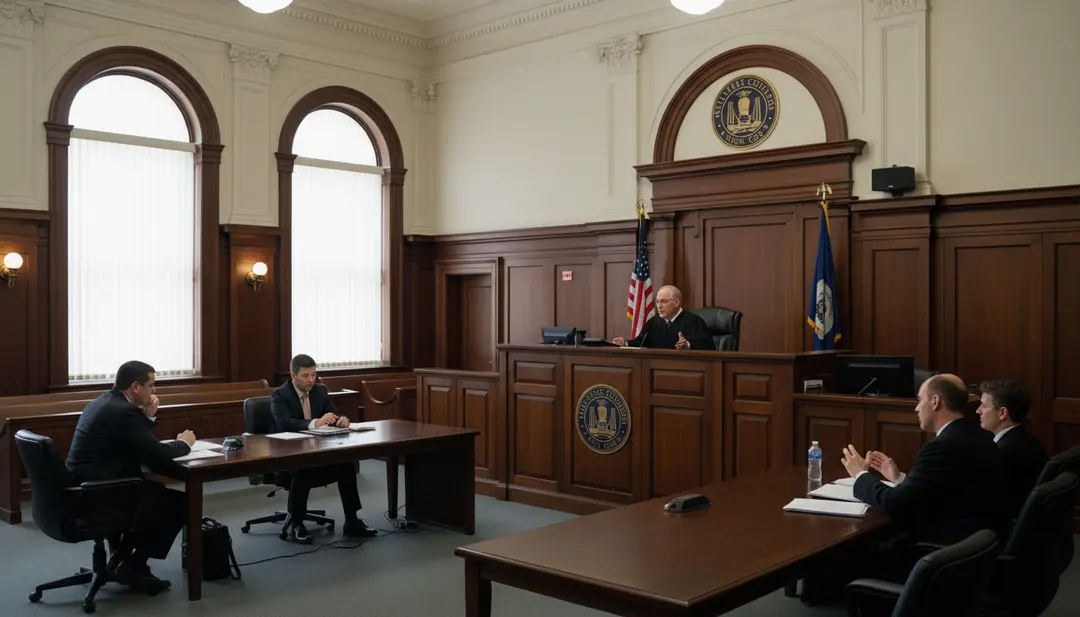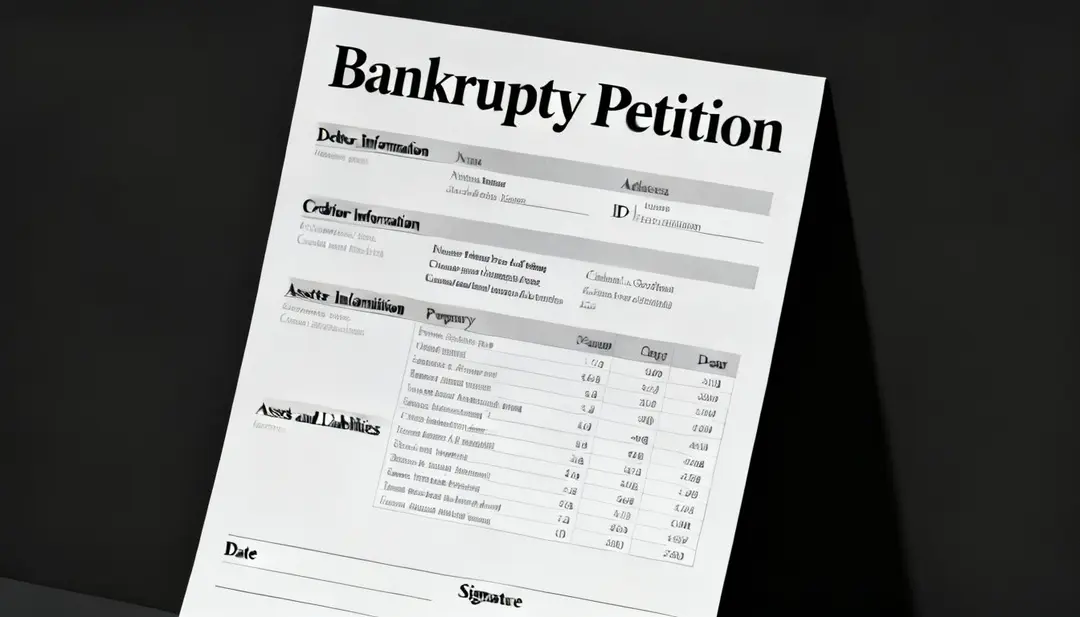Understanding the Impact of Rentals on HOA Communities in Arizona [Updated for 2025]
Short-term rentals have become a hot topic for Arizona HOA board members. These rentals are booming across Phoenix, Tucson, and many other communities, bringing both opportunities and serious questions for boards and residents. The impact of rentals on HOA communities reaches beyond legal rights—it touches financial stability and the day-to-day peace of our neighborhoods.
Understanding the effects of short-term rentals is essential for anyone managing an HOA. In this post, we break down what board members need to know about the legal, financial, and social aspects. At Halk, Oetinger, and Brown, we provide tailored support for Arizona HOAs by turning complex legal issues into clear solutions. Drawing on our experience as an Arizona HOA Attorney, Phoenix HOA Lawyer, and Tucson HOA Attorney, we help communities handle challenges, from covenant enforcement to assessment collections, all through our efficient flat-rate services.
For more on HOA short-term rental laws, see our guide to HOA Laws in Arizona: Navigating Short-Term Rentals.
Short-Term Rentals and Arizona HOAs: Legal Background
Short-term rentals affect many aspects of community life in Arizona. With more platforms offering vacation rentals, understanding how the law shapes these arrangements is a must for HOA board members. Arizona balances property rights with community rules, leading to a complex legal landscape. Let’s look at how state laws, HOA authority, and community rules shape the impact of rentals on HOA communities. We also bring our insight as an Arizona HOA Attorney team guiding communities with practical and effective legal advice.
State Laws Affecting HOA Short-Term Rental Policies
Arizona law offers strong protections for property owners who wish to lease their homes for short terms. In 2016, Arizona passed legislation (A.R.S. § 9-500.39 and A.R.S. § 11-269.17) that restricts cities, towns, and counties from outright banning or unduly restricting short-term rentals. The law was designed to support the tourism industry and protect property rights, making short-term rentals legal throughout the state unless a valid, recorded restriction applies.
This statewide approach limits the ability of both local governments and HOAs to add sudden new restrictions to rentals. Property owners who bought their homes without such limits can often continue renting on a short-term basis, regardless of how the industry changes. At the same time, the law leaves some room for associations to manage rentals when specific language exists in their governing documents. That’s why it is critical for every board to review their covenants and rules—and, when needed, update them according to state law and member consent.
Can HOAs Limit Short-Term Rentals?
The authority of HOAs to restrict or regulate short-term rentals depends entirely on what’s written in their documents—the Declaration of Covenants, Conditions, and Restrictions (CC&Rs). If restrictions against short-term rentals were properly recorded before an owner purchased, the HOA can enforce them.
However, Arizona law prevents HOAs from adding new restrictions to short-term rentals unless homeowners vote to amend the CC&Rs. This protects owners from changes that reduce their property rights after purchase.
The legal nuances matter:
• HOAs With Rental Restrictions in Place: Associations can enforce existing policies if restrictions were recorded before a homeowner bought their unit.
• No Pre-existing Restrictions: If short-term rental limits were not present, the HOA cannot apply new rules retroactively.
• Amending the CC&Rs: New restrictions can only be added with the proper owner approval process laid out in the CC&Rs, and under the guidance of an attorney.
For a deeper discussion on when HOAs can or cannot restrict short-term rentals, see our guide: can your HOA prohibit short-term rentals in Arizona. As attorneys who have served as Phoenix HOA Lawyer and Tucson HOA Attorney, we know the importance of clear documents and member involvement in any policy changes.
Common Restrictions Found in Arizona HOA Documents
Many Arizona associations have rental rules that impact how and when properties can be leased. These restrictions help maintain community stability and reduce turnover, yet they must comply with state law.
The most common provisions include:
• Minimum Rental Periods: Requiring leases to be at least 30 days (or another period) to discourage nightly or weekend rentals.
• Registration Requirements: Owners may need to inform the HOA when leasing and provide tenant contact details.
We see these kinds of rules frequently when advising community associations as an Arizona HOA Attorney. Each restriction must be clearly written and consistently enforced to avoid legal challenges. For detailed examples and key takeaways, explore our summary on what you need to know about HOAs and short-term rental laws in Arizona.
The right balance between owner rights and community goals protects property values and the quiet enjoyment of every resident. When it comes to the impact of rentals on HOA communities, the wording of each document and compliance with Arizona law makes all the difference.
Community Impact of Rentals on HOA Communities
Short-term rentals have changed the way we experience our neighborhoods in Arizona HOA communities. As more homeowners opt to list their properties on rental platforms, the ripple effects are clear. The impact of rentals on HOA communities goes beyond the law—it reaches into our daily routines, safety concerns, and even our collective finances. As Arizona HOA Attorney professionals, we’ve seen firsthand how these changes affect Phoenix, Tucson, and the entire state. Let’s look at how short-term rentals shape three core areas: quality of life and neighborly bonds, community safety, and the financial future of HOAs.
Quality of Life and Neighborhood Cohesion
The arrival and departure of short-term renters can feel like a revolving door in what was once a tight-knit neighborhood. Increased foot traffic changes the daily fabric of our communities. Residents may notice more strangers, less familiarity, and a drop in the neighborly connections that HOAs are known for fostering.
Some common issues emerge in communities with a high number of short-term rentals:
• Noise complaints can spike, especially on weekends and holidays.
• Parking conflicts often arise when guests bring more vehicles than a home can accommodate.
• Shared amenities like pools or grilling stations may see heavier use, sometimes causing frustration among long-term residents.
These challenges can weaken neighborhood cohesion. Residents who once greeted each other by name may now feel disconnected. When the sense of community fades, pride in the neighborhood can also drop. To maintain harmony and foster a welcoming environment for everyone, HOAs play a key role in encouraging open communication among owners and renters alike. Board members should consider clear guidelines and educate both owners and guests to reduce friction.
For deeper insight into how HOA rules shape our sense of belonging, refer to our article on federal HOA laws and their impact on Arizona communities.
Security and Safety Considerations
When new guests rotate through each week, safety and security take on new urgency. Unfamiliar faces can be unsettling, especially if guests don’t understand—or disregard—community norms. These security concerns have prompted many HOAs to review their policies and access protocols.
Key issues for boards to address include:
• Guest turnover: Frequent change in occupancy can make it harder to spot suspicious activity.
• Access to common areas: Guests may inadvertently receive keys or codes to amenities, posing potential security risks.
• Quiet hours and neighborhood watch: Enforcing established quiet hours and supporting neighborhood watch programs become even more important.
HOAs can take several steps to strengthen security:
1. Require owners to register tenants before arrival, so the board knows who is on the property.
2. Educate owners about responsible hosting and make sure rental listings mention HOA rules.
3. Update gate codes or physical keys on a regular schedule.
These steps help balance hospitality with the community’s safety needs. As Phoenix HOA Lawyer and Tucson HOA Attorney teams, we regularly advise associations on best practices to keep residents secure while still respecting homeowner rights.
Financial Effects for HOAs and Residents
Short-term rentals bring direct and indirect financial effects for HOAs and all residents. On one hand, owners may benefit from additional income. On the other, the community as a whole must consider the long-term costs and benefits.
Short-term rentals can impact:
• Dues Collection: Owners focused on investment returns may become less engaged with HOA responsibilities, sometimes leading to late or missed dues.
• Common Area Usage: Amenities like pools or clubhouses may require more frequent maintenance due to heavier use by guests.
• Property Values: The reputation of the community is at stake—too many rentals can lower the appeal for buyers seeking a quiet, stable environment.
When the balance tips, property values can be affected for all owners. Prospective buyers may be deterred by the perception of a “hotel-like” community or worry about recurring disruptions. Careful monitoring and thoughtful policy help protect both financial health and neighborhood reputation.
For more about how community choices influence home values, see our review of landscaping’s impact on property values in Arizona HOAs.
By staying informed and making decisions based on the real needs of our Arizona communities, HOA leaders and residents can work together to manage the impact of rentals—and preserve the trust and value we’ve all built together.
Best Practices and Legal Advice for Arizona HOAs
Adapting to the rise of short-term rentals means Arizona HOAs must update their playbook for governance and resident engagement. The impact of rentals on HOA communities presents both immediate and long-term challenges, putting pressure on boards to stay transparent, clear, and on strong legal footing. Building a lasting foundation starts with governing documents, visible communication, and a reliable partnership with the right Arizona HOA Attorney or local law firm.
Reviewing and Updating HOA Governing Documents
Regular review of governing documents is essential for every board serious about managing rentals and maintaining order. Arizona’s landscape for short-term rentals changes quickly, so outdated rules or unclear language can leave an HOA exposed. Establishing a habit of legal review—at minimum, once a year—helps the board stay aligned with current laws and community goals.
Working closely with legal counsel, we look for language gaps, ambiguous definitions, or aging provisions in CC&Rs and bylaws. Updating these documents allows us to set clear expectations for short-term rentals and create protections that match our community’s needs. When it’s time for revisions, transparency through board meetings and owner votes is key. Boards should keep a meticulous record of updates and discussions—these records serve as a roadmap for both new and seasoned board members. For more tips on maintaining proper documentation, see our advice in The Ultimate HOA Records Retention Guide.
Communicating Rules to Residents and Owners
Clear rules are only as good as our ability to communicate them. As more homes are listed as short-term rentals, open channels of communication keep everyone informed and connected. Sending reminders through newsletters, emails, or dedicated community portals ensures every owner, landlord, and tenant is on the same page.
Highlighting rental policies—such as limits on the number of guests, quiet hours, or parking guidelines—lets owners know what’s expected. We spell out the process for submitting tenant information and stress the consequences of non-compliance early and often. This reduces friction and builds trust, especially when enforcement becomes necessary.
Personalizing our outreach helps owners feel included in community decisions. By breaking down policies into plain language and sharing real-world scenarios, we empower them to make smart choices. Additional resources from our deep dive, Arizona HOAs 101: What Everyone Needs to Know About Arizona HOA Laws and Rules, can be a helpful reference for residents navigating these complex topics.
Getting Legal Support from HOA Attorneys
No board should face rental policy questions alone. Partnering with an experienced Arizona HOA Attorney, Phoenix HOA Lawyer, or Tucson HOA Attorney can make the difference between a smooth process and a costly dispute. Legal counsel keeps us compliant with layered state laws, helps draft bulletproof amendments, and stands ready for enforcement actions or litigation if needed.
At Halk, Oetinger, and Brown, we serve hundreds of Arizona communities using a flat-rate general counsel model. By keeping legal support predictable and accessible, we remove uncertainty from the equation. Our team walks boards through everything—from holding special meetings for amendments to interpreting recent legislation—always focusing on prevention over reaction.
A local attorney, familiar with the unique issues in Phoenix and Tucson, provides targeted guidance that saves money and hassle in the long run. When boards partner with law firms that specialize in assessment collection and covenant enforcement, the impact of rentals on HOA communities becomes manageable. For additional legal guidance specific to Arizona associations, our article An Essential Guide to Cultivating Transparency and Trust is a valuable resource.
Strong documents, active communication, and reliable legal backing give every Arizona HOA the tools to address rentals with clarity—and keep our communities thriving.
Frequently Asked Questions About Short-Term Rentals and Arizona HOAs
As short-term rentals have become more common in Arizona, HOA board members and residents bring up similar questions time and again. The impact of rentals on HOA communities covers everything from legal enforcement to daily living. Let’s tackle some of the most common concerns we hear from our clients and community partners as Arizona HOA Attorney professionals, Phoenix HOA Lawyer teams, and Tucson HOA Attorney advisors.
Are Short-Term Rentals Legal in Arizona HOAs?
Yes, short-term rentals are generally legal throughout Arizona unless an HOA’s governing documents—like the CC&Rs—clearly ban or limit them. Arizona laws protect owners’ rights to rent their properties, especially when rental restrictions were not in place when the property was purchased. HOAs can only enforce short-term rental restrictions if those rules were properly recorded before an owner bought their home. To change the rules and add new limits, boards must hold a community vote and amend the CC&Rs, following the process spelled out in the governing documents.
What Common Problems Come Up With Short-Term Rentals?
In our experience, the most frequent complaints about short-term rentals include:
• Excessive noise or parties disrupting neighbors
• Overflow parking blocking streets or driveways
• More wear and tear on common areas
• Security worries about unfamiliar guests
Boards may also face increased costs for amenities and maintenance. As the number of rentals grows, board members often need to spend more time on enforcement and resident concerns. We urge HOAs to use tools like incident tracking, clear communication, and written policies to help reduce friction and encourage responsible rental activity. For ideas on improving board efficiency under these conditions, check out our piece on maximizing efficiency with technology in HOA management, which also addresses how technology can help monitor and respond to issues caused by short-term rentals.
How Can HOAs Enforce Rules Against Problem Rentals?
Effective enforcement starts with clear documents and a fair process. HOAs can:
• Issue written warnings to owners who break rental or community rules
• Fine owners according to the notice and hearing provisions in the governing docs
• Require owners to register all renters and provide emergency contact information
• Condition amenity access on compliance with HOA rules
If an owner repeatedly ignores the rules, Arizona law allows HOAs to escalate enforcement, up to legal action if necessary. Our best advice is to work with an Arizona HOA Attorney to document every step and avoid inconsistent enforcement. Consistency and transparency build trust and reduce the risk of legal challenges.
What Steps Should Owners Take to Stay Compliant?
Owners need to review their HOA’s rules closely before listing a property for short-term rental. We always recommend:
• Registering tenants with the HOA and providing accurate contact details
• Handing over the HOA rules to each guest and reviewing important points
• Respecting all amenity rules, and parking policies
• Keeping communication open with both guests and the board
By following these steps, owners show respect for their neighbors and help the community avoid headaches. When owners and boards work as partners, the impact of rentals on HOA communities is more positive and easier to manage.
What If the Media Reports Problems With Rentals in Our Community?
Negative press coverage can damage the reputation of both an individual HOA and the entire neighborhood. It’s important to respond with facts, keep communication clear, and have a plan in place before issues arise. For board members seeking guidance on maintaining a positive community image—even amid controversy—our guide on how to handle and avoid most negative news coverage as an Arizona HOA provides specific strategies.
When Should Boards Call on an Attorney for Help?
Whenever the board faces a situation that feels legally risky, such as repeated rental violations, unclear CC&R wording, or potential litigation, reaching out to a trusted Arizona HOA Attorney or flat-rate legal counsel makes sense. Experienced attorneys like our Phoenix HOA Lawyer and Tucson HOA Attorney teams can interpret the law, write strong notices, and represent the community if a dispute heads to court. We believe legal guidance should be proactive and accessible, saving time, money, and neighborly relationships in the long run.
Staying informed on the shifting rules and best practices lets both board members and owners protect what matters most—community trust and property values. By addressing these FAQs head-on, we give everyone the tools to respond with confidence as short-term rentals continue to impact HOA communities across Arizona.
Conclusion
The impact of rentals on HOA communities calls for careful balance between homeowner rights and the stability of our neighborhoods. By staying informed, updating governing documents, and communicating clearly, we set an environment where all residents—owners and renters alike—can thrive. When challenges arise, seeking advice from an experienced Arizona HOA Attorney, Phoenix HOA Lawyer, or Tucson HOA Attorney can reduce risk and protect our collective interests.
At Halk, Oetinger, and Brown, we specialize in making legal services accessible and predictable for Arizona HOAs. Our flat-rate general counsel approach, deep experience with assessment collections, and hands-on support set us apart. We help communities solve problems, not bill hours.
For those looking to strengthen their association’s operations, our guide on what templates every Arizona HOA can utilize to be more effective offers practical tools. Thank you for investing your time to strengthen your community’s future. Share your experiences or contact us for guidance tailored to your HOA’s needs.














